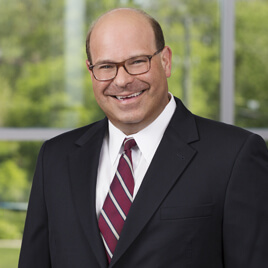Introduction
Like any other relationship, the foundation of a client’s relationship with their attorney is trust. When an attorney represents a client in a litigation matter, it is oftentimes the most emotional, stressful, or painful time in the client’s life and they are entrusting their attorney to guide them through the storm. But what happens when an attorney violates their client’s trust by taking money from their client in order to financially benefit themselves? The ongoing scandal surrounding attorney Tom Girardi is an extreme, but cautionary tale of what could happen when an attorney takes money belonging to their clients and uses it for personal reasons.
The Fall of Tom Girardi
Girardi was a well-known and respected California attorney who garnered a reputation for successfully litigating mass tort claims against large corporations.[i] He was one of the attorneys who handled Anderson, et al. v. Pacific Gas & Electric, a water contamination case that resulted in a $333 million settlement for the plaintiffs, one of the largest in history, and served as the inspiration for the movie Erin Brockovich starring Julia Roberts.[ii]
In 2020, Girardi’s career, reputation, and law firm imploded when a Chicago law firm filed a lawsuit against him alleging that he had misappropriated settlement funds in a case regarding a plane crash in Indonesia in 2018.[iii] Since then, Girardi has faced numerous civil lawsuits, criminal charges, and disciplinary investigations. Many of these proceedings have alleged that Girardi misappropriated millions of dollars from client settlements and verdicts in order to fund and flaunt a lavish lifestyle for him and his soon to be ex-wife, Erika Girardi, a cast member on The Real Housewives of Beverly Hills.[iv]
Possible Ramifications for Attorneys and Insurance Carriers
Although the Girardi scandal is an extreme and uncommon occurrence in the practice of law, Illinois attorneys and their insurance carriers should still be aware of the possible ramifications of misappropriating client funds for personal use. Such conduct can have an impact not only on the attorney, but also on the carrier.
Illinois attorneys who misappropriate client funds can be subject to disciplinary proceedings by the Attorney Registration and Disciplinary Commission (“ARDC”). Discipline for such conduct ranges anywhere from censure to disbarment and depends on the individual facts and circumstances of each case. See In re Grant, 89 Ill. 2d 247, 254 (1982). However, the ARDC is much more likely to disbar attorneys who misappropriate client funds specifically for personal use. See In re Stillo, 68 Ill. 2d 49, 54 (1977); see also In re Smith, 75 Ill. 2d 134, 142 (1979) (“[W]hen a lawyer converts a client's funds to his own personal use he commits an act involving moral turpitude, and, in the absence of mitigating circumstances, such conversion is a gross violation of the attorney's oath, calling for the attorney's disbarment.”).
Additionally, Illinois attorneys who misappropriate client funds and their law firms can be subject to civil claims by the aggrieved client as well as criminal charges. Continental Cas. Co. v. McDowell & Colantoni, Ltd., 282 Ill. App. 3d 236, 239 (1st Dist. 1996) (attorney who misappropriated client funds for personal use was sued by client and pled guilty to federal mail fraud charges).
Moreover, insurance carriers can potentially face issues with coverage if their insureds are sued for misappropriating client funds depending on the claim and the policy’s language. In McDowell, for example, the plaintiff filed a lawsuit against her former attorney, his law firm, and his partners after he misappropriated funds from her daughter’s personal injury settlement; she alleged, in part, that the partners’ failure to adequately monitor the firm’s trust and operating accounts allowed the misappropriation to occur. Id. at 238-39. The firm’s insurance carrier then filed a declaratory judgment action to exclude the former client’s claim from coverage under the policy’s dishonesty exclusion due to the former attorney’s misappropriation of funds for both professional and personal use. Id. at 239-40.
The trial court agreed with the carrier that the former attorney’s conduct fell within the scope of the exclusion and, thus, ruled that the carrier had no duty to defend the insureds. Id. at 240. However, the Illinois Appellate Court reversed and held that the carrier did have a duty to defend because the former client’s claim arose, at least in part, due to the partners’ failure to monitor the firm’s trust and operating accounts, thus it fell within the scope of the policy’s provision providing coverage for negligence. Id. at 244.
Conclusion
An attorney’s misappropriation of client funds is an unfortunate occurrence that can have rippling and complex effects on both the attorney and the carrier. These effects can vary based on the facts, the language of the policy, and the types of claims brought against the attorney. As such, it is imperative that attorneys and law firms take any necessary measures to guard against misappropriation of client funds as well as for carriers to review the language of their policies. Failure to do so could have severe, time consuming, and costly consequences for both.
[i] https://www.latimes.com/archives/la-xpm-1996-07-03-mn-20787-story.html
[ii] https://www.latimes.com/california/story/2020-12-17/tom-girardi-erika-jayne-rhobh-divorce
[iii] https://www.reuters.com/article/us-otc-girardi/tom-girardi-and-reality-star-wife-sued-for-alleged-theft-of-lion-air-settlement-funds-idUSKBN28C3F7
[iv] https://abcnews.go.com/US/attorney-tom-girardi-pleads-guilty-defrauding-victims-2018/story?id=97619338


